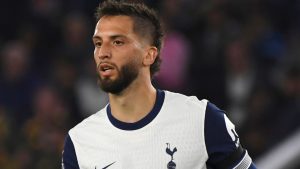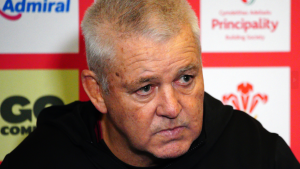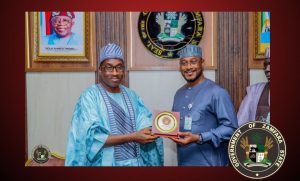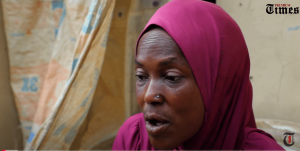Pebble gives Mickelson last, best chance at elusive US Open
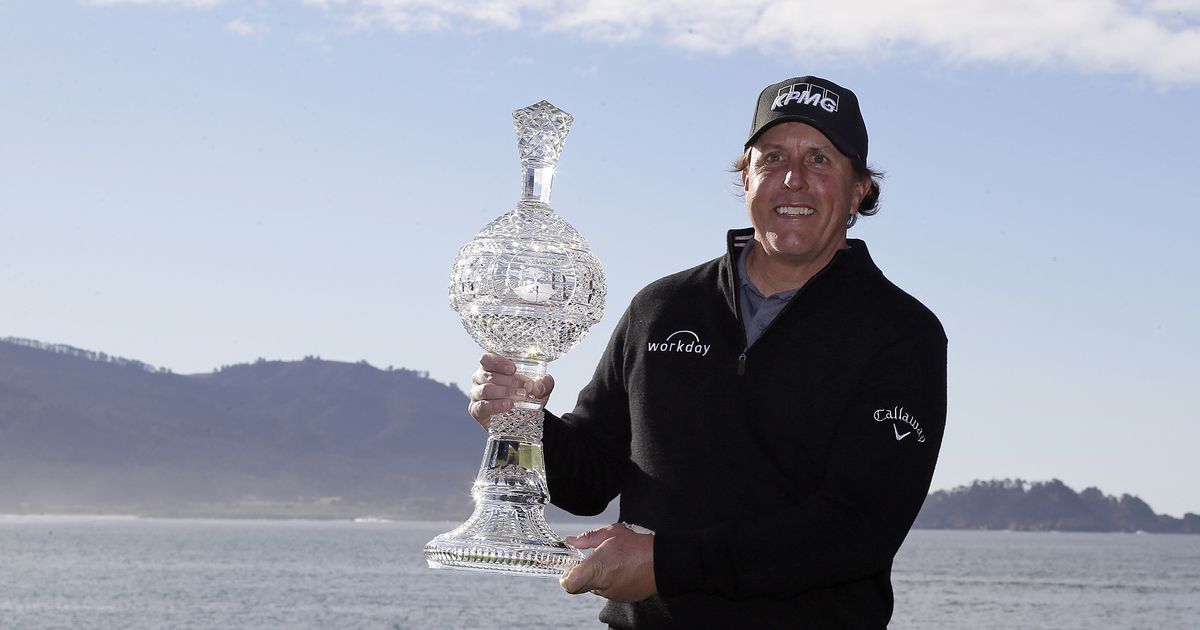
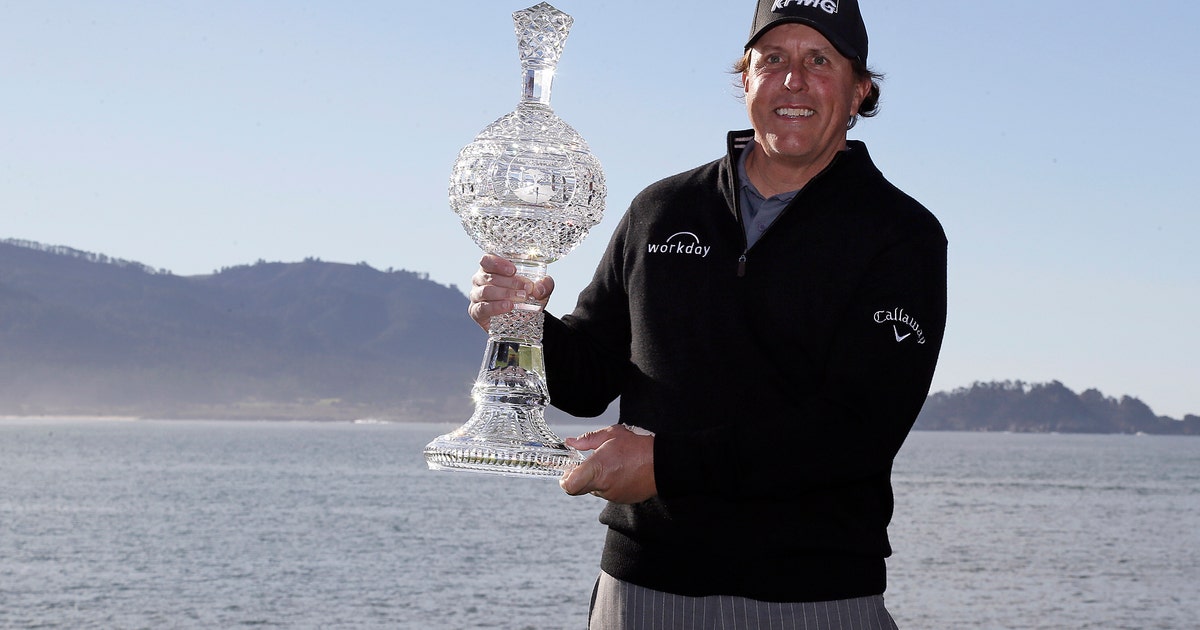
There was the hospitality tent at Winged Foot.
There was Payne and the pager at Pinehurst.
There was a near-miss at Merion.
To list all of Phil Mickelson’s close calls, meltdowns and shortfalls at the U.S. Open is to peer into a particularly tortured chapter of the history of one of golf’s greatest champions.
More uplifting are the stories from Mickelson’s five tour victories at Pebble Beach — including one earlier this year.
It’s what makes Mickelson’s trip next week to Pebble all that much more tantalizing. It’s his chance to finally win the tournament he’s wanted so badly — maybe too badly — at a course teeming with history and good vibes for not only himself, but for his family and for the game itself. It’s a week during which the five-time major winner, who turns 49 on the day of the final round, will come face to face with what could be his last, best chance to win the U.S. Open.
And become the sixth player to complete the career Grand Slam.
“No,” Mickelson said when asked if he felt pressure to capture the final leg of the slam in order to enhance his legacy. “It’s just that it would be pretty special to be part of the elite players that have won all four. To me, that’s the sign of a complete game.”
It’s hard to argue Mickelson hasn’t proven he has the game to win a U.S. Open. He has played in 25 of them as a professional, finished in the top 10 in 10, and finished runner-up in six of those. And yet, the defining trait of America’s national championship is that it delivers the ultimate examination of every part of a player’s game. That includes the mental and emotional approach — and, it follows that a big piece of that puzzle is the ability to stay cool and make good decisions when the lights are the brightest.
To many, Mickelson’s putt-sweeping debacle at Shinnecock last June, where he finished 48th, was a culmination of a quarter-century’s worth of frustration from a player fed up with the vagaries of the USGA’s perennial course-setup controversies, to say nothing of the long, star-crossed history he has written for himself in the major he has valued the most.
But if there was a single 20-minute stretch that defines Mickelson at the U.S. Open, it would be the 18th hole at Winged Foot in 2006. He carried a one-shot lead into final hole. His driver — Mickelson hit only two fairways the final round — bounced off a hospitality tent, well left of the fairway and behind a phalanx of trees that blocked his path to the green. Instead of punching out, trying to save par for the win or bogey for a playoff, he went for it. He dismissed the odds and chose against making what looked like the “smart” play, much the way he has throughout a career of all-or-nothing risk taking that has paid off as often as not.
The ball hit a tree and barely went 25 yards. Mickelson made double bogey and lost by one.
“I still am in shock that I did that. I just can’t believe that I did that,” Mickelson said afterward. “I am such an idiot.”
There were close calls both before and after that blow-up, starting in 1999 at Pinehurst, when Mickelson brought a pager with him in case his expecting wife, Amy, went into labor with the couple’s first child, Amanda. She didn’t. Mickelson played all four rounds. His loss to Payne Stewart after Stewart made and Mickelson missed clutch putts on the final three holes didn’t feel all that devastating at the time. Though the loss kept him without a major title, he was 29: Mickelson was on the verge of becoming a father.
Father Time was only a faint apparition.
Mickelson’s most recent second-place finish — in fact, his last showing in the top 25 at the U.S. Open — came in 2013 at Merion. He carried the outright lead into the final day for the first time, but played the last six holes in 3 over in an eventual loss to Justin Rose.
He has three Masters titles, one British Open, one PGA Championship and nothing to show from the U.S. Open but a silver medal — a record six of them.
Nobody with access to a calendar will miss the irony in that next year, on the same week Mickelson turns 50 and becomes eligible for the senior tour, the U.S. Open will return to Winged Foot.
But first … Pebble Beach.
Nobody has won more trophies at the tournament known in its formative years simply as the Bing Crosby Clambake. And if Mickelson feels at home on the shores of the Monterey Peninsula, it makes sense. His mother’s father, Al Santos, grew up in the area, and even had a caddying gig at Pebble when it opened 100 years ago, in 1919. Mickelson marks his ball with the 1900 silver dollar his grandfather kept in his pocket to remind him that he wasn’t poor.
Mickelson made his pro debut in the 1992 U.S. Open at Pebble Beach, where he opened with a 68 and was two out of the lead, but shot 81 on Friday to miss the cut. After his fifth victory there in February, a win that marked No. 44 for his career, Mickelson was asked about his history, and his future, at the course.
“I really don’t think there’s any carry-over from here to the U.S. Open. It’s a totally different golf course,” he said, a nod to the dry-and-crispy conditions in June, to say nothing of what the USGA usually does to its U.S. Open layouts. “I just really enjoy this place. I seem to play some of my best golf here and that’s probably about it.”
And so, the questions remain: Can he play his best golf there once again?
And if so, will it be enough to win a championship that has cruelly uncovered every flaw in his game, and turned him into Patient No. 1 on the day after Father’s Day for every armchair psychologist or Monday morning quarterback who ever put a tee in the ground?
If he does win it, will it change Mickelson’s place in golf history? He’s already in good company, one of 12 players, including Arnold Palmer, Lee Trevino, Tom Watson and Byron Nelson, to win three of the four legs of the modern slam. (Sam Snead is the only other whose missing title is the U.S. Open).
But there’s a chance Mickelson could find himself in even better company — as in, the company of the career Grand Slam winners: Gene Sarazen, Ben Hogan, Gary Player, Jack Nicklaus and Tiger Woods.
At least one more good chance.
“No matter what, he’s going to be one of the greatest players that’s ever played this game,” Woods said. “How he’s viewed and whether he wins the career Grand Slam or not, I still think he’s one of the best players to ever pick up a golf club.”


